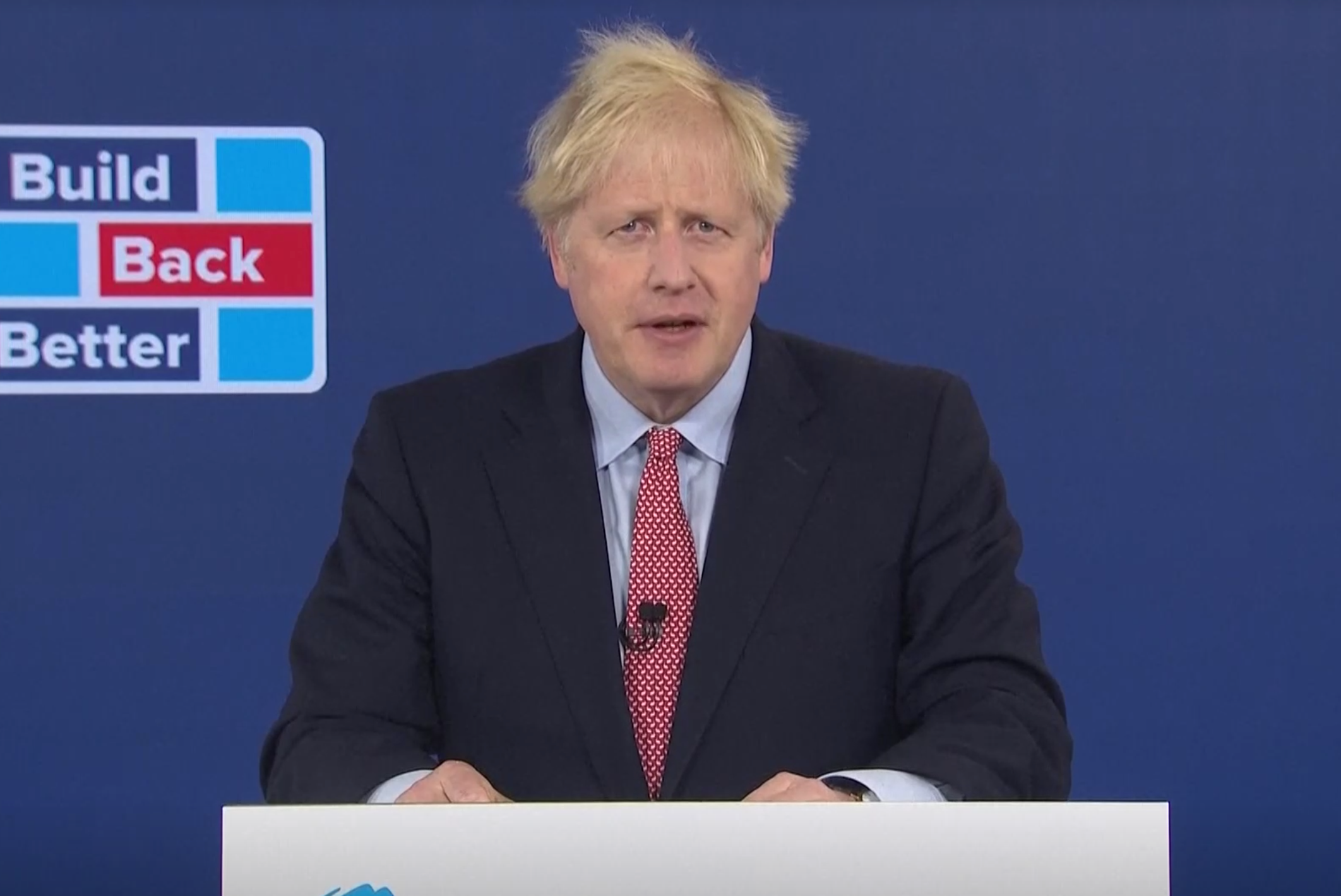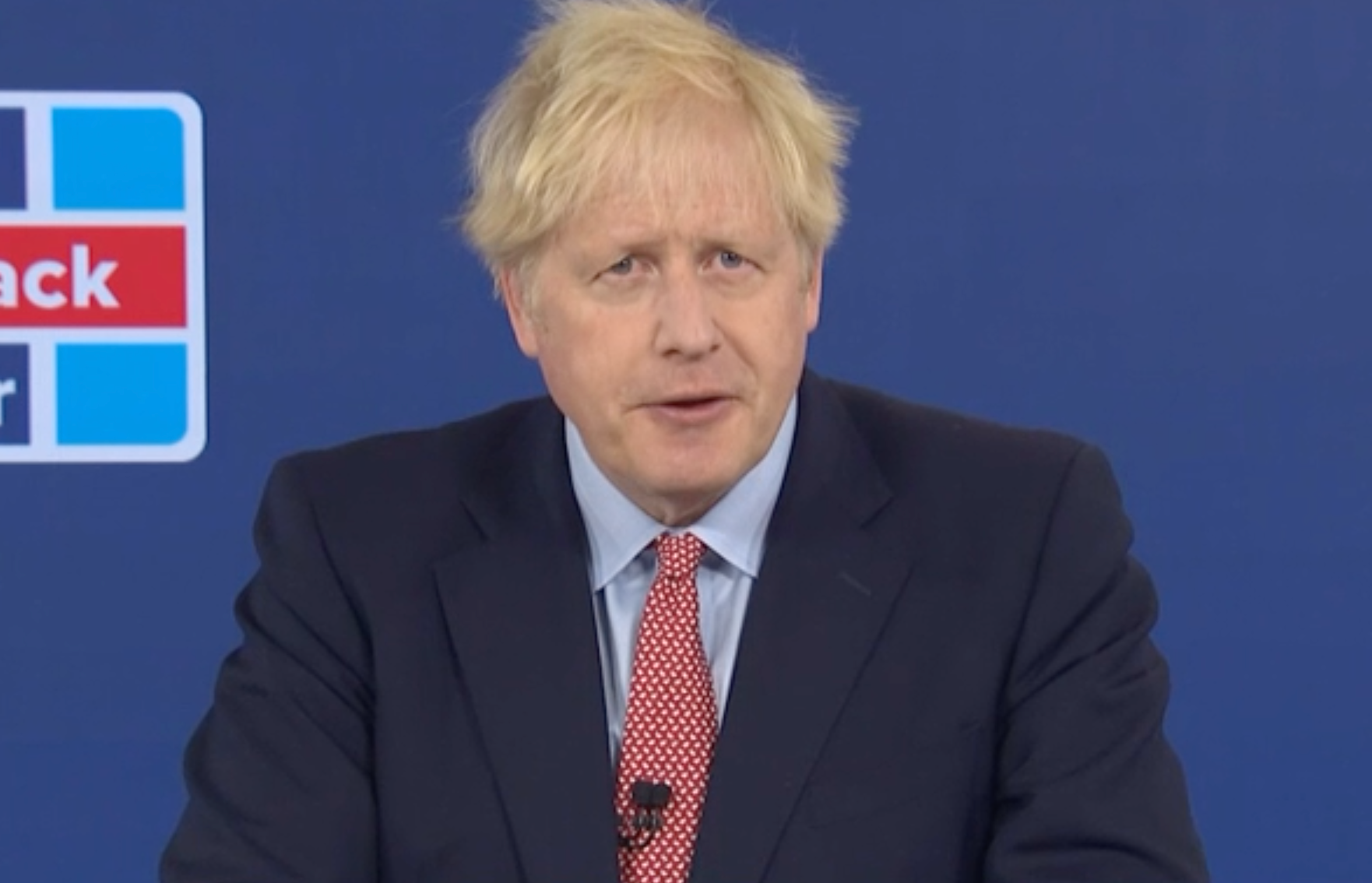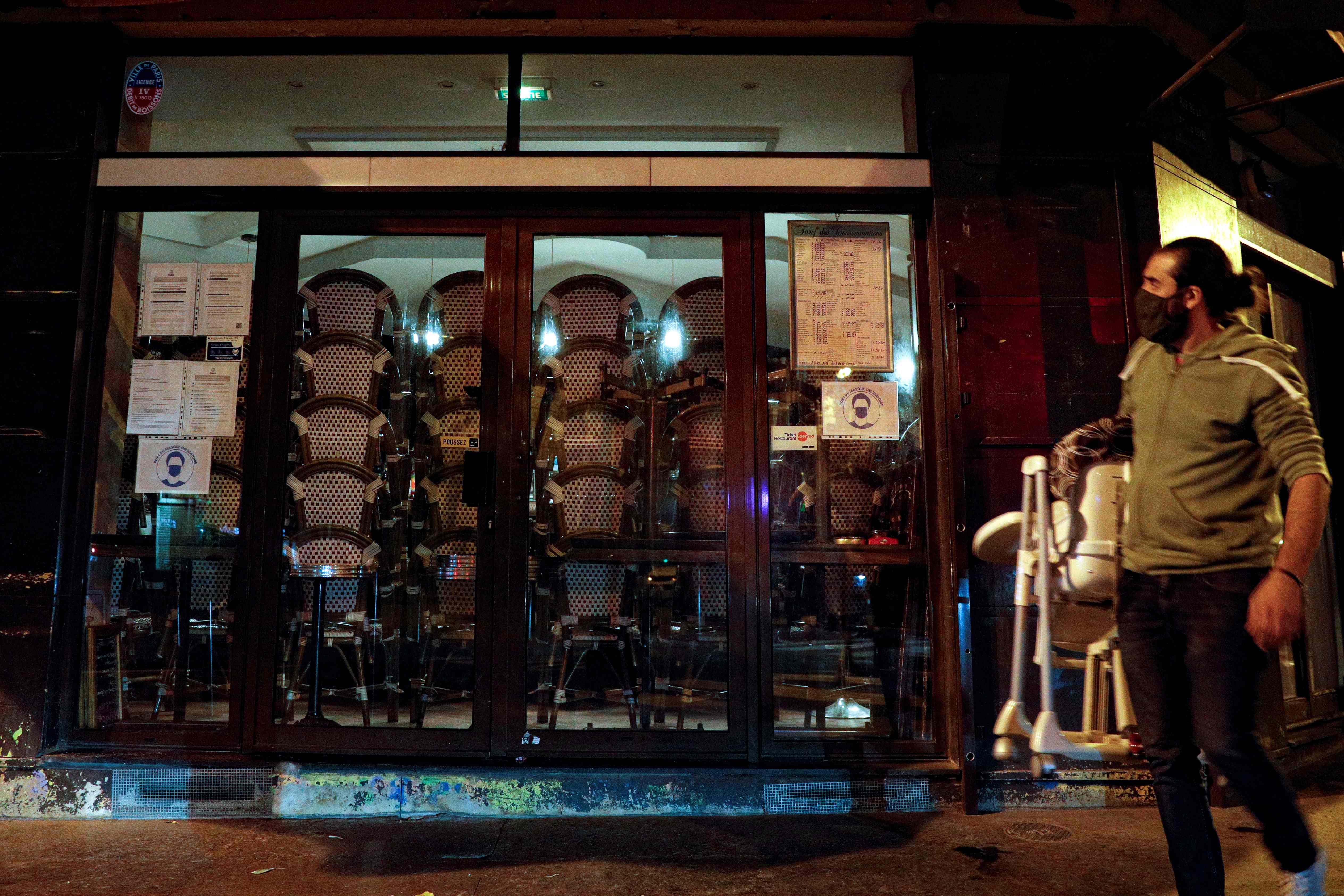Coronavirus news: England hospital admissions up nearly one-quarter in a day, as MPs back 'rule of six'
See how we covered Tuesday’s events live
Your support helps us to tell the story
From reproductive rights to climate change to Big Tech, The Independent is on the ground when the story is developing. Whether it's investigating the financials of Elon Musk's pro-Trump PAC or producing our latest documentary, 'The A Word', which shines a light on the American women fighting for reproductive rights, we know how important it is to parse out the facts from the messaging.
At such a critical moment in US history, we need reporters on the ground. Your donation allows us to keep sending journalists to speak to both sides of the story.
The Independent is trusted by Americans across the entire political spectrum. And unlike many other quality news outlets, we choose not to lock Americans out of our reporting and analysis with paywalls. We believe quality journalism should be available to everyone, paid for by those who can afford it.
Your support makes all the difference.The number of people admitted to English hospitals with coronavirus leapt by nearly one-quarter from Saturday to Sunday, government figures revealed.
There were 478 admissions on Sunday, the most recent day for which figures have been provided, up from 386 the day before.
Meanwhile, Boris Johnson has won a Commons vote on the “rule of six”, despite anger at the government’s ability to bypass parliamentary scrutiny during the pandemic. MPs voted in favour by 287 votes to 17 – but 12 Tories rebelled and voted against the regulation.
Growing frustration with restrictions on freedom comes at a time when some experts are warning those crackdowns may have to become more stringent.
Speaking on BBC Newsnight on Tuesday, Professor John Edmunds said a return to national lockdown should come sooner rather than later.
The Sage adviser said: "We are starting to get to a point where we really will have to take really critical action otherwise we are going to run the risk of turning the National Health Service back into the national Covid service.
"These local restrictions that have been put in place in much of the north of England really haven't been very effective. We need to take much more stringent measures, not just in the north of England, we need to do it countrywide, and bring the epidemic back under control."
He was speaking after it became likely that new a local lockdown would be imposed in Nottingham, where the director of public health described a spike in cases as “significant and worrying”.
In the US, Donald Trump has continued to downplay the dangers of Covid-19, despite contracting it himself. He also called an abrupt halt to negotiations with Democrats on badly-needed new economic stimulus.
Health service needs to ‘bear down’ on long waiting times for cancer patients, Hancock says
Health secretary Matt Hancock has said it is important to “bear down” on the long waiting times for cancer patients to see a specialist during the pandemic.
Mr Hancock was asked by Alex Norris, a shadow public health minister, if he could give a “categorical assurance” that there was a cancer recovery plan to drive down waiting lists in each month for the rest of this year.
The health secretary replied: “Yes, absolutely. I think we agree right across this House of the importance of this agenda.
“The first and most important part of it is to bear down on the long waits because, of course, the longer that you wait, the more dangerous cancer can become.”
Sturgeon to address Scottish parliament tomorrow to announce new restrictions
Scotland’s first minister Nicola Sturgeon will address the Scottish parliament tomorrow afternoon to announce new coronavirus restrictions following a rise in cases.
Ms Sturgeon said on Tuesday that Scotland had recorded two new Covid-19 deaths and 800 new confirmed cases of the virus in the past 24 hours.
She added that the cases figure was 13.2 per cent of newly-tested individuals, up from 12.8 per cent the previous day.
More details from Nicola Sturgeon’s press conference
The Scottish first minister has said she will not be announcing a national travel ban, a shutdown of the economy or widespread “stay at home” orders tomorrow.
Labour raises concerns over ‘two-tier’ test system for ‘Moonshot’ plans
Labour’s shadow health minister has raised concerns about the possible creation of a two-tier system for coronavirus tests where some people have to pay as part of the government’s “Moonshot” plans to expand the service.
“It undermines the fundamental principle of the NHS and will do nothing to stop the spread of the virus,” Justin Madders told the House of Commons.
“So will the minister give us a definite answer today, are some people going to have to pay to access the Moonshot test, yes or no?”
Helen Whately, the care minister, replied that she did not recognise the suggestion that there should be a two-tier system for testing.
“What we have in place is a universal system where everybody who has symptoms is able to access a test, and as he will well know where we know that we have particular risks, like for those in care home settings,” she said.
Johnson dismisses claims he is suffering from long Covid as 'seditious propaganda'
Boris Johnson has rejected claims that he is suffering from ongoing symptoms of Covid-19, branding the suggestions as “seditious propaganda”.
Observers have suggested that the prime minister’s sometimes low-energy demeanor is due to the effects of his illness in April, which saw him hospitalised in intensive care.
Our policy correspondent, Jon Stone, has the full story below:

Boris Johnson says claims he is suffering from long Covid are 'seditious propaganda'
PM challenges detractors to a wrestling match to prove his health
Proportion of secondary schools not fully open increases in past week
The proportion of secondary schools which are not fully open has increased in the past week, government figures have suggested.
Approximately 82 per cent of state secondary schools were fully open on 1 October - down from 84 per cent a week earlier, according to the Department for Education's latest attendance statistics.
Schools are considered to be not fully open if they are unable to provide face-to-face teaching for all pupils for the whole school day and have asked a group of students to self-isolate.
Overall, approximately 92 per cent of state schools were fully open, down from 93 per cent on 24 September, with responses from schools indicating most were not fully open due to coronavirus-related reasons.
PA
Johnson says coronavirus crisis will be over by this time next year
Boris Johnson has indicated that he expects the coronavirus crisis to be over by this time next year, predicting that Conservative activists will be able to meet in person for the 2021 party conference.
The prime minister told his party that he would ensure that this time next year people would be able to meet “face to face and cheek by jowl”.
Our political editor, Andrew Woodcock, has the full story below:

Covid crisis will be over by this time next year, says Boris Johnson
Prime minister says UK cannot ‘just go back to normal’ after pandemic
Students 'on the whole' behind university spikes
Students not following coronavirus guidelines while socialising is “on the whole” to blame for a spike in cases - at least according to one minister.
In response to thousands of students being told to self-isolate following outbreaks at UK universities, Michelle Donelan, the universities minister, claimed while the “vast majority” of students had been following the rules, a minority had been “sometimes socialising in a way that is not fit with the guidance”.

Minister blames Covid spikes at universities on students breaking social rules
Thousands are self-isolating in halls following outbreaks
Nightclub reopenings unclear
Nightclubs: remember them? If you were wondering when the government is planning to give the green light for them to reopen you may have to guess a while longer as the chief secretary to the treasury has admitted ministers still don’t know.
Responding to a Labour MP Steve McCabe's concerns about the nightclub industry's financial difficulties, Stephen Barclay said: "(Mr McCabe) is absolutely right that probably acute amongst all businesses affected is the nightclub sector and I think that is not just because it has been shut down from the very start of the lockdown, but also because it is very unclear when the end would be in sight in terms of that sector and our ability to reopen.
"Now some sectors, including the nightclub sector, I think it is around one-third of them have repurposed in terms of becoming pubs or reshaping their offer - but I absolutely accept that not all nightclubs will be able to do that.
"And what we're trying to do is to target the very comprehensive measures of support on those areas where jobs can be saved, but we recognise not every single job will be saved."
‘Covid-19 fatigue’
“Covid-19 fatigue” is apparently growing across Europe as more people feel apathetic about a pandemic that has “exhausted all of us” for eight months.
Hans Henri Kluge, the World Health Organisation’s regional director for the continent, said countries must find ways to “reinvigorate and revive” efforts to tackle the virus as infection rates rise in many parts of the world despite the “huge sacrifices” already made by populations, said .

WHO warns of growing ‘Covid-19 fatigue’ across Europe as cases rise
Countries urged to ‘reinvigorate and revive’ efforts to tackle pandemic as apathy rises among ‘exhausted’ populations

Join our commenting forum
Join thought-provoking conversations, follow other Independent readers and see their replies
Comments